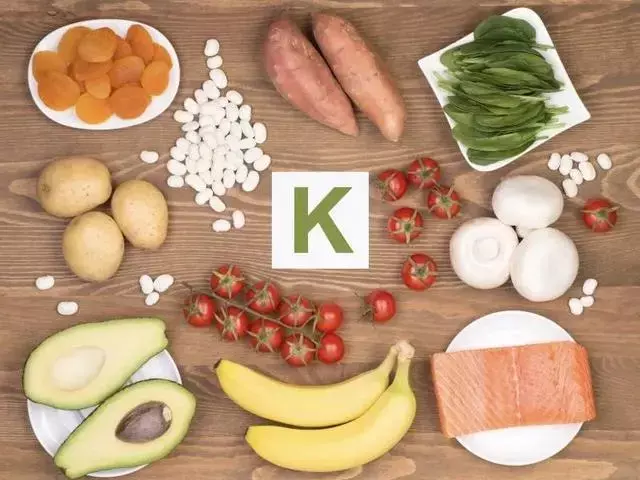
Many people know that if you have high blood pressure, you should eat less salt and reduce sodium intake. But with more and more gourmet food, everyone may be eating too much salt without knowing it. Therefore, it is recommended to replace ordinary table salt with low-sodium and high-potassium salt in the daily diet. Potassium can promote the excretion of sodium to a certain extent. We generally consume more salt in our daily life, and the sodium element in the body will also increase, which leads to an increase in blood pressure, and potassium element can promote the excretion of excess sodium from the body with the urine, helping to lower blood pressure. The World Health Organization strongly recommends increasing potassium intake in food to reduce the risk of high blood pressure, stroke and coronary heart disease in adults. Unfortunately, the vast majority of people do not have the active awareness of ensuring potassium intake, and the importance of this element is far from being recognized by everyone.
If you take antihypertensive drugs for a long time, don’t forget to supplement this nutrient
For hypertensive patients, potassium supplementation and sodium restriction are equally important. Among the common antihypertensive drugs, there is a drug that steals potassium from the body. This drug is a diuretic, which mainly reduces blood volume by inhibiting the reabsorption of sodium in the renal tubules, and causes potassium excretion in the body while reducing blood pressure. Potassium-lowering diuretics are mainly divided into loop diuretics (such as furosemide, torasemide, bumetanide), thiazide diuretics (such as hydrochlorothiazide, indapamide), and serum potassium needs to be reviewed after taking them. If hypokalemia occurs, symptomatic treatment is required. The loss of potassium is increased, and hypokalemia is prone to occur. Therefore, patients with hypertension who use diuretics should supplement potassium in time. Hypertensive patients must check their renal function and blood potassium before supplementing potassium! When renal insufficiency occurs, the excretion of potassium will be affected, and a high-potassium diet should not be used.
Beware of potassium deficiency in summer
In summer, the human body is most prone to potassium deficiency. Because the weather is hot, the human body is prone to sweating. In the excreted sweat, in addition to water and sodium, there is a certain amount of potassium ions, so a lot of sweating can easily lead to a decrease in potassium content. . In addition, summer is prone to gastrointestinal diseases, such as gastrointestinal disorders, diarrhea, vomiting, etc., which will also cause the body to lose potassium ions.
These performances remind you that it is time to supplement potassium
The main function of potassium in the human body is to maintain acid-base balance, participate in energy metabolism and maintain normal neuromuscular function. difficulty. Low potassium can also slow down gastrointestinal motility, aggravate anorexia, and cause nausea, vomiting, abdominal distension, constipation and even intestinal obstruction.
Potassium supplementation, keep in mind the principle of priority of food supplementation
Potassium deficiency is dangerous, but potassium supplementation cannot be done casually. A large amount of potassium-containing drugs or oral potassium preparations can lead to excessive potassium in the body, which may cause heart block, slow heartbeat, and stop fluctuations in severe cases. When using the drug potassium during treatment, be sure to follow your doctor’s instructions. The nature of potassium is relatively stable, and it is not easy to be lost from food. Eating more potassium-rich foods in the daily diet can play a supplementary role.
●Most fruits are high in potassium and low in sodium, and do not need to be eaten with salt, which is very beneficial to improve the ratio of sodium and potassium in food. Recommended high-potassium fruits are bananas, oranges, grapefruit, watermelon, strawberries and so on.
● Among common vegetables, spinach, amaranth, green garlic, green onions, broad beans, and yam are relatively high in potassium. Various grains are also masters of potassium supplements, such as buckwheat, corn, sweet potatoes, potatoes, etc.
●Drinking tea is also a good way to replenish potassium. Tea is rich in potassium. Drinking more tea in summer can not only relieve the heat, replenish the water lost due to sweating, but also replenish potassium. You can choose to drink black tea or green tea according to your preference.
(Chuanguan News)